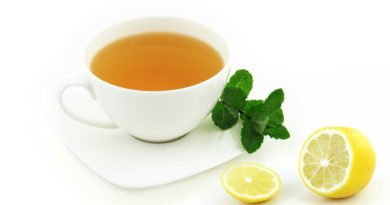The Role of Hydration in Enhancing Your Fitness Routine
Hydration plays a pivotal role in maintaining overall health and wellness. However, its significance becomes even more pronounced when it comes to fitness routines. Whether you’re a professional athlete or someone who enjoys a casual workout, staying adequately hydrated can significantly enhance your performance and recovery.
Water makes up about 60% of our body weight and is involved in numerous bodily functions, including regulating body temperature, transporting nutrients, and maintaining organ function. When we exercise, our bodies generate heat, which is then dissipated through sweat to help cool us down. This process leads to water loss that needs to be replenished to maintain optimal bodily functions.
One of the primary benefits of proper hydration during workouts is improved performance. Dehydration can lead to fatigue and reduced motivation, making it harder for you to complete your exercise routine effectively. It can also impair your body’s ability to control its temperature and increase the risk of heat exhaustion or even heat stroke in severe cases.
In addition to enhancing performance, staying hydrated also aids in recovery after workouts. Water helps flush out toxins from the body and transports nutrients that assist in repairing muscles damaged during exercise. This process is crucial for reducing muscle soreness and promoting faster recovery.
Moreover, hydration also plays a role in preventing injuries during workouts. Dehydrated muscles are more prone to cramping and other injuries as they lack the elasticity needed for safe movement. Therefore, ensuring adequate fluid intake before, during, and after workouts can help keep your muscles healthy and injury-free.
While water is often sufficient for short workouts or those performed at low intensity, you may need sports drinks for longer or more intense sessions. These beverages contain electrolytes like sodium and potassium that are lost through sweat during exercise. They also provide carbohydrates that can be used as an energy source during prolonged physical activity.
The amount of fluid needed varies depending on several factors such as age, gender, weight, type of exercise performed, its intensity level, and the climate. A general guideline is to drink at least 8-10 glasses of water per day and increase this amount when exercising. However, it’s crucial to listen to your body’s signals. Thirst, dry mouth, fatigue, and dark-colored urine are common signs of dehydration that indicate you need to increase your fluid intake.
In conclusion, hydration is a key component of a successful fitness routine. It not only enhances performance but also aids in recovery and injury prevention. Therefore, make sure you’re drinking enough fluids before, during, and after workouts to keep your body functioning at its best. Remember that maintaining proper hydration is just as important as the workout itself for achieving your fitness goals.





